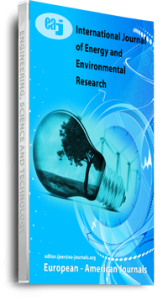The study assessed the impact of oil spill on surface and aquatic life in some selected oil producing communities of Delta state. A survey and experimental design was adopted for the study. The data for the study were derived from surface water samples, as well as questionnaire responses. samples were collected from six (6) oil producing communities of Tebu, Tisun, Okpail, Emedadja, Ote-Do, and Okpare respectively and taken to the laboratory for analysis. Samples were collected using purposive and systematic techniques. Total of (200) copies of questionnaire were administered to the selected communities and analyzed using simple percentages and presented in charts and tables. The study find out that the major causes of oil spillage package are: pipeline linkages, well blow out, accidents during and after drilling operation, sabotage, explosions of oil terminals and wells, spills from vandalized oil pipelines and linkages, spill from loading oil vessels. It is concluded that the significant deterioration in both surface and aquatic life due to oil extraction. Therefore, the use of such waters for drinking and domestic purposes may pose a threat to the health of the users. Thus, there is need for the intervention by government agencies while simple physical treatment of pollutants is recommended.
Keywords: aquatic life; pipeline vandalization; hydrocarbon content; biological oxygen demand and total suspended solids, crude oil spills; surface water

